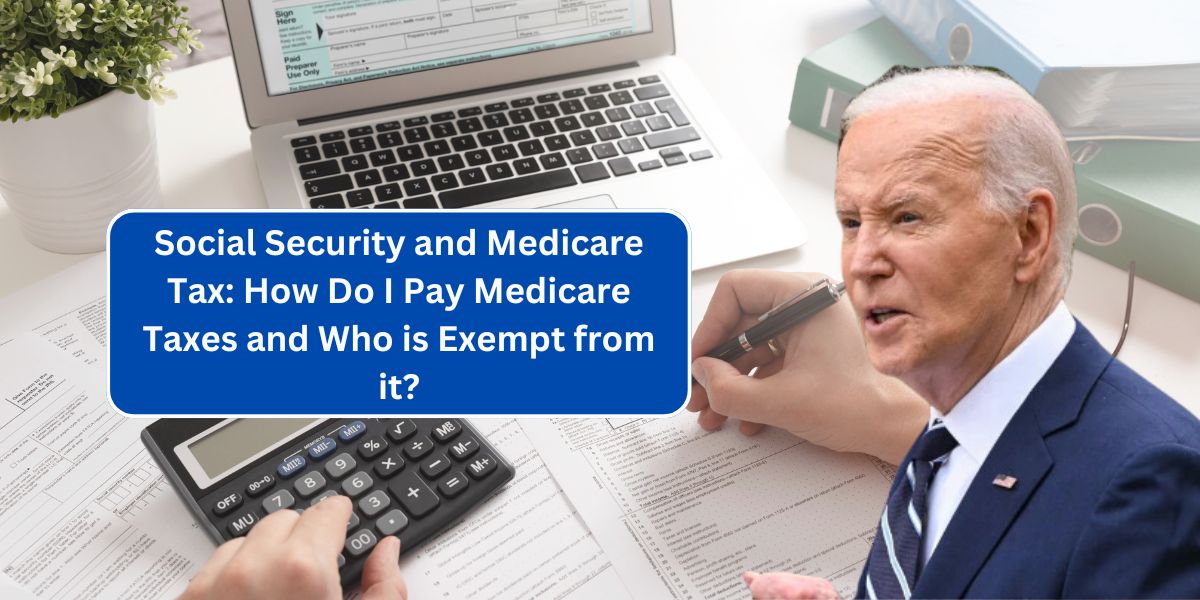In this article, you’ll learn about Social Security and Medicare taxes, including how to pay Medicare taxes and who is exempt. In the US, employees are required to contribute a portion of their earnings to Social Security and Medicare taxes each month.
Table of Contents
Social Security and Medicare Tax
Every employee must contribute a specific amount to various taxes. After retirement, contributors receive benefits such as hospital insurance coverage and disability income. For more detailed information about Social Security and Medicare Tax, including how to pay and the benefits provided, continue reading this article.
Under the Federal Insurance Contributions Act (FICA), employees are required to contribute a total of 12.4% of their earnings, which is split equally between the employer and the employee.
These contributions support benefits such as old-age pensions, survivor benefits, hospital insurance, and disability benefits. Social Security and Medicare taxes are employment taxes applied regardless of an employee’s citizenship or residency status.
| 2000 Stimulus Checks For Veterans 2024 |
| 700 Stimulus Checks 2024 |
| Group Retirement Savings Plan |
| Cola Increase 2024 |
| Scotiabank Interest Rate Changes 2024 |
What is Social Security and Medicare Tax?
The Social Security program is funded via a fee paid on both employers and employees. This tax, collected through payroll deductions, is mandatory under SECA and provides benefits for retirement, disability, and other survivor needs. Millions of beneficiaries receive support through the OASDI program.
Medicare tax is another employment tax that funds the Medicare program. Similar to Social Security tax, employees are required to contribute 2.9% of their earnings. Both Social Security and Medicare contributions are necessary for employees to become eligible for benefits from these programs after a specified period.
How Do I Pay Medicare Taxes?
Employees are not required to pay Medicare taxes directly. Instead, when receiving wages, employees will see the deducted Medicare taxes on their pay stubs. Nearly all employers and workers must contribute to Medicare.
The deducted amount is based on rates set by the Federal Government, which are adjusted annually. Medicare taxes are set at a total rate of 2.9%, with both the employer and the employee each contributing 1.45%.
Benefits of Social Security and Medicare Tax
Both employers and employees receive various benefits after contributing to the programs. These benefits include:
- Pension Benefits: Individuals will receive pension benefits after reaching the age of 65, based on their contributions.
- Medical Facilities: Individuals and their families will have access to medical services.
- Survivor’s Benefits: Beneficiaries will receive financial support in the event of the contributor’s death.
- Disability Benefits: Disabled individuals will receive additional support related to their disability.
These benefits are available to employees who make their contributions through taxes. Those who do not contribute to these programs will not be eligible for financial or medical benefits from the government.
Who is Exempt from Social Security and Medicare Tax?
Most employees are required to contribute to both Social Security and Medicare programs, which provide essential income sources during retirement. However, there are some exemptions, including:
- Foreign academics or researchers who are non-immigrants or non-residents
- Self-employed workers who earn less than $400 annually
- Temporary students
- Individuals qualifying for a religious exemption
- Employees of foreign governments
These exemptions mean that the specified groups are not subject to these contributions. To receive benefits, individuals must be U.S. residents working under a U.S. employer. Foreign residents working in the U.S. will not receive these benefits, as U.S. residency is required.




